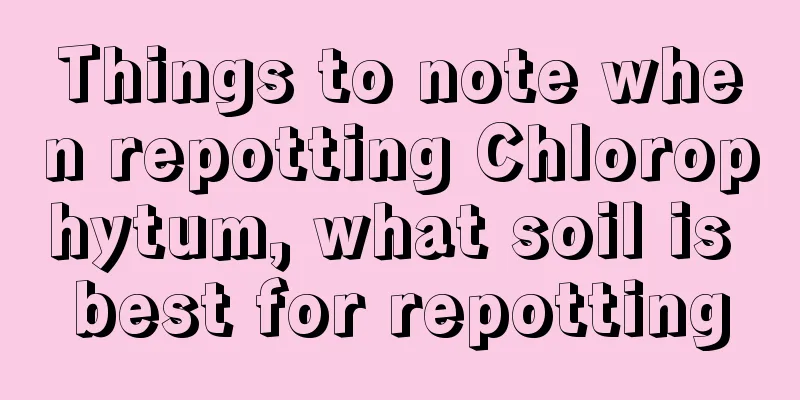How to grow green radish

1. Breeding environment:1. Soil: Chlorophytum comosum needs loose, breathable and well-drained soil, so the soil needs to be loosened frequently during the cultivation process. 2. Temperature: The most suitable temperature for growing green radish is 15℃-30℃. Even the lowest temperature in winter should not be lower than 10℃. Only in this way can the green radish grow better. 3. Water: Ensuring that the soil is moist is the best growing condition. There is no need for excessive watering, as excessive watering will cause the roots of the green radish to rot. 4. Fertilization: Appropriate fertilization is also helpful for the growth of green radish. It should be noted that green radish does not need fertilizer in winter. 2. Reproduction method:1. Propagation by cuttings: Select relatively sturdy branches from the center of the green radish, preferably about ten centimeters in length, and insert them in loose and fertile soil. Be careful not to use soil with fertilizer, and avoid direct sunlight. 2. Water propagation: Cut off two similar branches of the green radish, then place them in a cool place for about 20 minutes. After the wound is dry, put them in water. 3. Notes:1. Pay attention to ventilation: Many people know that green radish likes cool locations, but few people know that green radish needs to be ventilated frequently. If it is not ventilated, the leaves will easily turn yellow. 2. Dealing with yellow leaves: The most common problem in growing green radish is the appearance of yellow leaves. In this case, you can cut off the middle of the petiole. Do not remove the yellow leaves directly. The purpose of doing this is to avoid water loss caused by the wound, which will lead to more yellow leaves. |
<<: Don’t wait until next year to grow these 6 kinds of flowers, grow them now, it will be too late!
>>: Cultivation methods and precautions of pepper tree
Recommend
How long is the growth cycle of Sichuan pepper?
Introduction to the growth of pepper Sichuan pepp...
Cutting propagation methods and precautions for Chlorophytum
Chlorophytum comosum propagation method Chlorophy...
When is the best time to transplant lettuce?
Lettuce, which is what we call leaf lettuce, is m...
Camellia's water requirements
1. Watering frequency Camellia likes water during...
Cultivation methods and precautions of Guanyinlian Arrowroot
1. Breeding methods 1. Temperature: The most suit...
Pest Control for Succulents
Common pests Red Spider It mainly harms succulent...
Hibiscus cultivation methods and precautions
Flower Pot Selection It is best to use unglazed p...
How to breed the succulent red mouth
How to breed redmouth When breeding small red-bil...
What to do if the leaves of bougainvillea turn yellow
1. Adjust watering method (1) Specific reasons: T...
The difference between Bauhinia and Bauhinia
Distinction between families and genus Bauhinia i...
How to raise Ji Longyue's headshot
Sunshade The moonflower likes sunlight. When the ...
Mango seed germination method
The purpose of mango germination is to speed up t...
How long is the life span of passion fruit? How does passion fruit survive the winter in the south?
1. Lifespan Passion fruit is a perennial fruit tr...
How to care for the newly bought Guanyin lotus
1. Soil The Alocasia odora prefers loose, breatha...
How to grow red succulent plants and what pots to use
1. How to grow the little red succulent 1. Soil: ...









